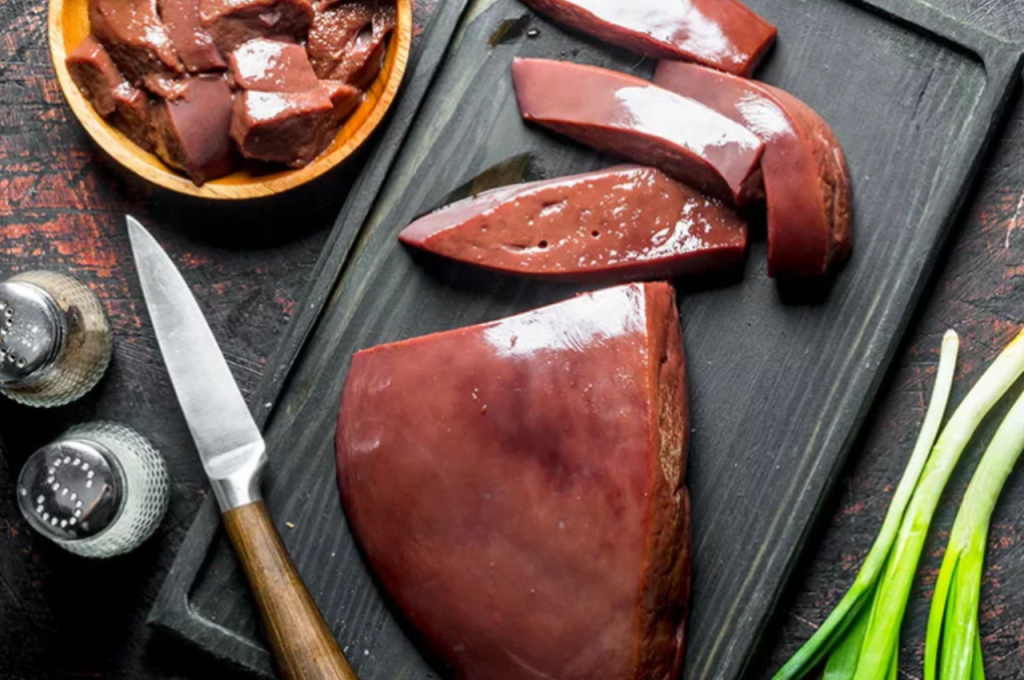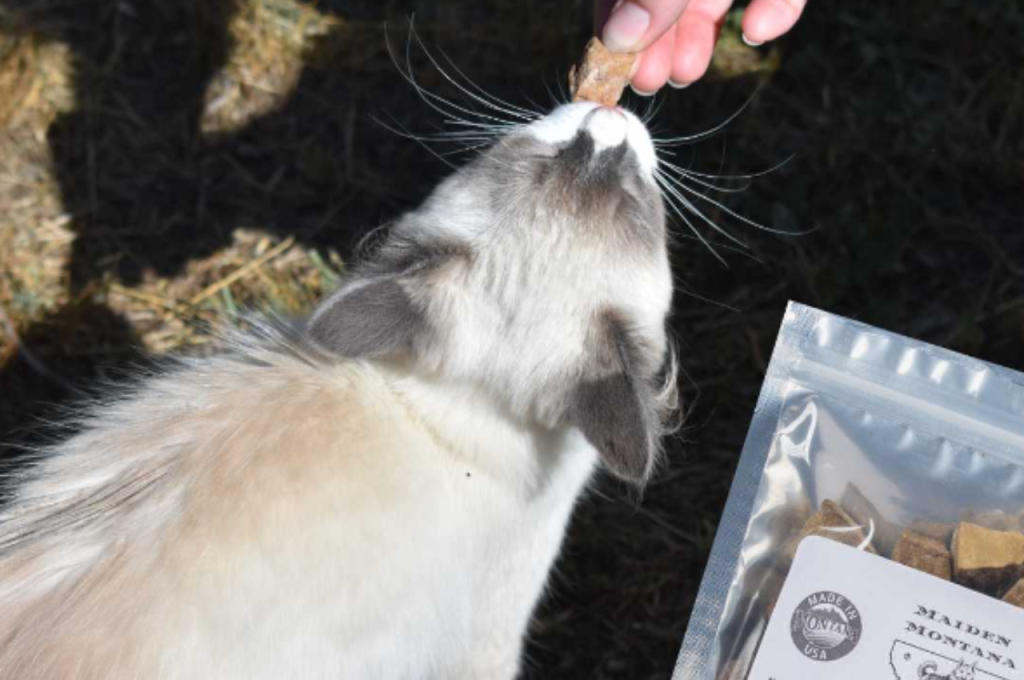Beef liver is good for cats as it is a nutritious source of protein and essential nutrients. Cats can benefit from the vitamins and minerals found in beef liver, which can support their overall health and well-being.
Beef liver is a nutritious choice for cats. It is packed with protein and essential nutrients that are beneficial for their health. Cats can benefit from the vitamins and minerals found in beef liver, which can support their overall well-being.
By including beef liver in their diet, cat owners can ensure that their feline companions receive the necessary nutrients they need to thrive. However, it is important to note that beef liver should be fed in moderation, as part of a balanced diet. Feeding too much beef liver to cats can lead to nutritional imbalances and digestive issues. As with any new food, it is always best to introduce beef liver gradually and consult with a veterinarian for guidance.
Nutritional Benefits of Beef Liver for Cats
When it comes to the nutritional benefits of beef liver for cats, this organ meat packs a powerful punch in terms of its rich nutrient profile, making it a healthy addition to your feline’s diet.

Rich Source of Protein and Amino Acids
- Beef liver is packed with high-quality protein that helps support muscle development and repair.
- It contains essential amino acids critical for various bodily functions in cats.
High in Vitamins and Minerals
- Beef liver is a nutrient-dense food, providing cats with essential vitamins such as vitamins A, B, and K.
- It is also a rich source of minerals like iron, zinc, and selenium, which are vital for overall health.
Potential Risks of Feeding Beef Liver to Cats
While beef liver can offer several nutritional benefits to cats, it is essential to be aware of the potential risks associated with feeding this organ meat. Cats have unique dietary needs, and certain factors in beef liver can pose health hazards for our feline friends. The following are two potential risks of feeding beef liver to cats:
Vitamin A Toxicity Risk
High amounts of vitamin A in beef liver can lead to a condition known as hypervitaminosis A in cats. This occurs when cats consume excessive amounts of vitamin A, which their bodies are unable to process and eliminate effectively. Symptoms of vitamin A toxicity in cats may include loss of appetite, weight loss, bone and joint pain, and even liver damage. It is crucial to remember that while vitamin A is essential for cats, excessive quantities from beef liver can be harmful.
Excessive Purine Content
Another potential risk associated with feeding beef liver to cats is its high purine content. Purines are compounds that break down into uric acid in the body. Cats lack the necessary enzymes to break down uric acid efficiently, which can result in the formation of urinary crystals or stones. Feeding beef liver, which is rich in purines, can increase the risk of these urinary issues. To mitigate this risk, it is advisable to feed beef liver to cats in moderation and consult with a veterinarian for appropriate portion sizes.
How Much Beef Liver Can Cats Eat?
Feeding your cat beef liver in moderation can offer numerous health benefits due to its high nutritional value. However, it is essential to follow appropriate feeding guidelines to prevent overfeeding or nutrient imbalances.
Feeding Guidelines
When incorporating beef liver into your cat’s diet, it’s crucial to ensure the portion sizes align with their overall dietary requirements. As a general rule, cats can consume beef liver as a small part of their overall diet. Experts recommend that beef liver should make up no more than 5% of a cat’s total daily food intake.
It’s important to note that excessive consumption of beef liver can lead to vitamin A toxicity, which can be detrimental to your cat’s health. To avoid this, proportion control is vital when feeding beef liver to your cat. You should also consider alternate protein sources in your diet to maintain a balanced nutritional intake.
Moreover, it’s advisable to consult with your veterinarian regarding the appropriate beef liver intake for your cat, as their specific dietary needs may vary based on factors such as age, weight, and overall health.
Alternatives to Beef Liver for Cats
When considering the diet of cats, finding suitable alternatives to beef liver is crucial. While beef liver is a beneficial source of nutrients, it’s essential to provide variety in a feline’s diet to ensure they receive a balanced intake of essential vitamins and minerals.
Other Nutrient-rich Foods
Several other nutrient-rich foods can serve as excellent alternatives to beef liver for cats. These include chicken liver, which is also high in essential nutrients like vitamin A, iron, and protein. Additionally, turkey liver can be a great alternative, offering similar nutritional benefits to beef liver.
- Fish: A significant source of Omega-3 fatty acids and protein, salmon and tuna can be a beneficial addition to a cat’s diet.
- Eggs: Providing a good source of digestible protein, eggs can be a valuable alternative to beef liver for cats.
Supplements
In addition to natural food sources, supplements can also be used as alternatives to beef liver. Taurine, an essential amino acid for cats, can be provided in supplement form, ensuring cats receive the necessary amount of this critical nutrient in their diets.

Symptoms of Nutritional Imbalance in Cats
Keep an eye out for signs of nutrient imbalance in cats, as symptoms can vary. Beef liver can be beneficial for cats as it is a nutrient-rich food that can support their overall health. Remember to incorporate it in moderation to maintain a balanced diet for your feline companion.
Cats, just like humans, need a balanced diet to thrive and maintain optimal health. Nutritional imbalance in cats can lead to a range of symptoms that pet owners should be aware of. By keeping an eye out for these signs, you can help ensure that your feline friend is getting the nutrients they need for a happy and healthy life.
Signs to Watch Out For
When it comes to identifying nutritional imbalance in cats, watching out for these signs can be crucial:
1. Weight Loss or Gain: Significant changes in your cat’s weight can indicate a lack or excess of certain nutrients in their diet. Rapid weight loss may be a sign of malnutrition, while sudden weight gain can signify an imbalanced diet.
2. Dull Coat and Hair Loss: A cat’s coat is often a reflection of their overall well-being. If your cat’s fur appears dull, dry, or brittle, it may be a sign of nutritional deficiency. Additionally, excessive shedding or hair loss could indicate a lack of essential vitamins and minerals.
3. Poor Dental Health: Cats that lack proper nutrients may experience dental issues such as inflamed gums, excessive tartar buildup, or even tooth loss. These problems can make it difficult for your cat to eat and chew properly.
4. Weak Immune System: Cats with a compromised immune system are more susceptible to infections and illnesses. If your cat seems to be frequently falling ill or takes a long time to recover, it could be a result of inadequate nutrition.
5. Changes in Behavior: Nutritional imbalances in cats can have a significant impact on their behavior. Look out for signs of lethargy, irritability, or excessive sleepiness, as these could indicate a lack of essential nutrients in their diet.
6. Digestive Issues: Cats with poor nutrition may experience digestive problems such as vomiting, diarrhea, or constipation. These issues can be a result of imbalances in their diet, causing discomfort and potential long-term health problems.
Consulting A Veterinarian
Consulting a Veterinarian is crucial for ensuring your cat’s health and well-being. Consulting a professional provides comprehensive guidance tailored to your cat’s specific needs, facilitates proactive healthcare management, and builds a lasting foundation for optimal health and vitality.

Importance of Professional Advice
Professional advice from a veterinarian is essential for making informed decisions about feeding your cat beef liver.
Guidance On Nutritional Needs
Veterinarians can provide specific guidance on meeting your cat’s nutritional needs with beef liver.
Monitoring Health Conditions
Veterinarians can monitor your cat’s health conditions to determine if beef liver is suitable for them.
Customized Feeding Plans
Veterinarians can create customized feeding plans that incorporate beef liver based on your cat’s requirements.
Conclusion
Beef liver can be a nutritious addition to your cat’s diet, offering essential vitamins and minerals for overall health. However, it is crucial to provide it in moderation and consult with your veterinarian to ensure it aligns with your cat’s specific needs.
Remember, a balanced diet is key to keeping your feline friend happy and healthy.
